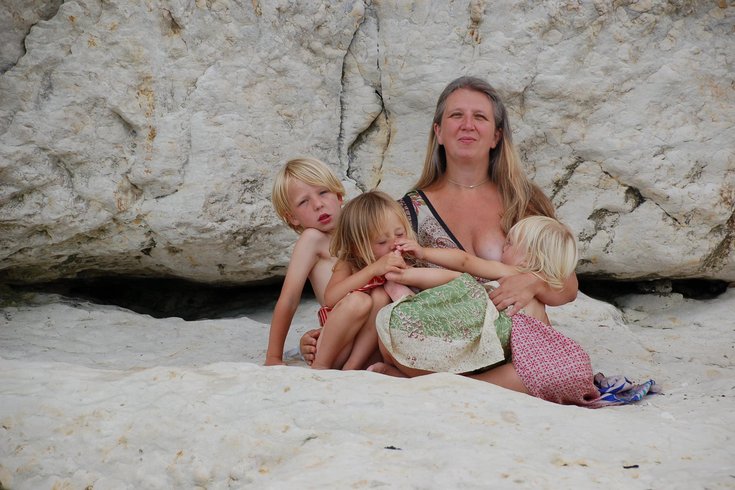
March 17, 2016
 File Art /for PhillyVoice
File Art /for PhillyVoice
A mother breastfeeds one of her children on the beach.
The word "natural" has been used to promote organic food, laundry detergent — and, now, breastfeeding.
The federal Office on Women's Health has a pro-breastfeeding campaign called "it's only natural," and the president of the American Academy of Pediatrics once called breast milk "the best and most natural food for infants." It seems like the perfect word to use for any public health group that wants to encourage women to choose the breast over the bottle.
Two researchers at the University of Pennsylvania's Perelman medical school, however, say that those groups should think twice before promoting the idea that "natural" things are better for you. Such language could inadvertently help fuel a movement against very unnatural medicines and vaccines.
"There are these two very different and kind of diametrically-opposed issues going on in public health right now: promotion of breastfeeding and combatting anti-vaccination efforts. Yet the language in both of those camps in two different scenarios can look very similar," points out Jessica Martucci, author of a book on the history of breastfeeding called Back to the Breast.
Martucci and Anne Barnhill, both researchers at Perelman's Department of Medical Ethics, published an editorial this month in Pediatrics on the use of the word "natural" in breastfeeding campaigns.
The worry is that public health groups will end up shooting themselves in the foot if they try to promote the "natural is good" ethos for breastfeeding while denying that very same argument when it's used against vaccinations.
"You want to be careful that you're not accidentally or inadvertently fueling that larger discourse of 'natural' aligning with 'healthier' in all scenarios," said Martucci.
For example, the editorial pointed to a poster put out by New York City's health department that called breast milk "Mom-made" while formula was labeled "factory-made."
"If breastfeeding promotion frames the 'factory-made' option as risky or unhealthy, what should parents conclude when choosing between factory-made vaccines and boosting immunity 'naturally'?" the authors wrote.
Concerns about inadequate childhood vaccination heightened this past summer after a measles outbreak that started at a Disney theme park affected more than 180 people, most of them unvaccinated. One person died, the first death from measles in the U.S. in over a decade.
The authors are neutral on the issue of breastfeeding itself, but they argue that if public health groups are going to promote it, they shouldn't contradict themselves on the issue of whether what's "natural" is always good.
"You may actually be invoking a whole set of ideas you're not interested in promoting," said Martucci.